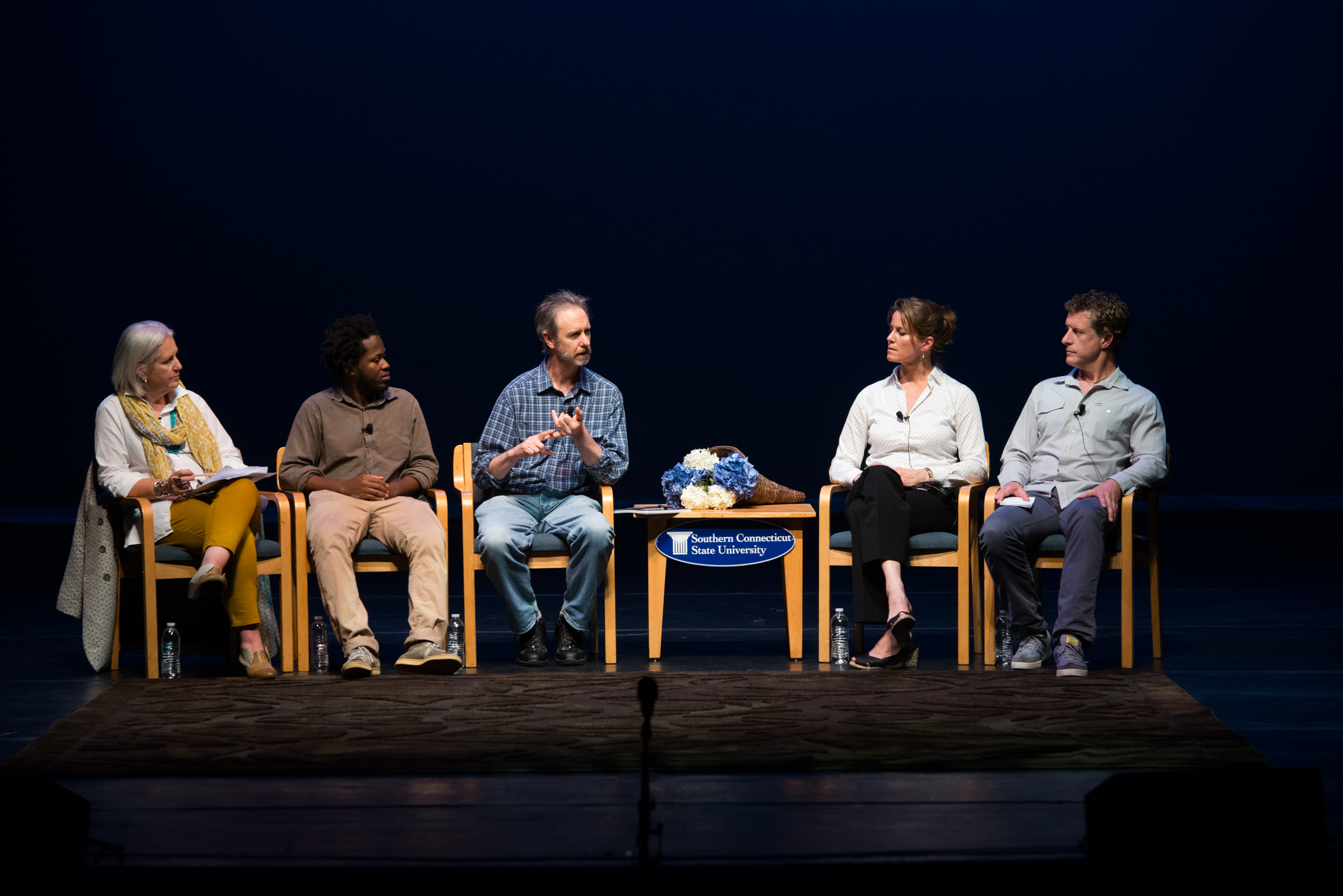Lee Keylock believes in the power of stories. A graduate of Southern’s MFA program in creative writing, an instructor in the English Department and a high school English teacher in Newtown, Keylock’s professional life is all about stories, language and narrative and teaching students to harness and use their power. After the Sandy Hook shootings in December 2012, on a day when he was teaching his classes at Newtown High School, Keylock, like so many who were close to the event, felt powerless to help his students. He began to search for ways to help them cope with the immense grief they were dealing with, and naturally, he turned to stories. A novel crossed his path — Let the Great World Spin by the Irish writer Colum McCann — and Keylock thought this might just be a book that could offer his students some hope. The New York Times has called the novel “the greatest novel to come out of the World Trade Center attacks.” Yet Keylock says the book ultimately offers a vision of redemption.
Keylock wrote to McCann, asking for his help. In return, McCann sent Keylock copies of the book for his students and offered to come to Newtown to meet with them. In his meetings with students, McCann listened to their stories, but also told them some of his own, and he talked to them about an organization he had just helped found, called Narrative4 (N4). He explained to them that N4 is based on story exchanges: it connects groups of students from different parts of the country and the world and then pairs students within the groups to exchange personal stories one on one. Each person must then retell his or her partner’s story back to the group. The stories can range from accounts of losing a parent to cancer or a friend to gang violence, to tales of first love. Some of the meetings take place in person while many take place on Google hangouts because of distance. Regardless of the means through which they take part, those who have participated in an N4 story exchange say they find the experience profound and often transformative.
After McCann’s visit, Keylock was inspired to become involved with N4 and eventually became one of the organization’s lead educational advisers. He wanted to try an N4 story exchange with his own students. The organization was very new; the first exchange took place in Chicago in March 2013, with several educators and community leaders. The idea behind N4 is “to promote empathy through the exchange of stories” and “break down barriers and shatter stereotypes” by encouraging participants to see the world through each other’s eyes. Keylock says, “It’s easy to become cynical in today’s world. Narrative 4 is fostering a sense of hope. It is an authentic experience that makes kids feel heard and relevant.” He says the program can work for anyone, but because he is a teacher, his focus is on students.
In January, Keylock implemented exchanges with 180 students in four classrooms at Newtown High School, and he and his colleagues introduced the first official curriculum model in the classroom. In March, he and a teacher from Chicago’s Crane High School connected 12 students from the west side of Chicago and 12 students from Newtown. He explains that the story exchange experience requires that students really listen to each other and come to “own” each other’s stories. Keylock says that “kids find out they have the same hopes and fears,” no matter where they come from in the world. The process is very powerful, he says, and students often keep in touch with each other after going through it and become “ambassadors” for the program. N4 describes itself as teaching “radical empathy,” and certainly, as Keylock describes it, taking part in an N4 exchange can do just that.
Because it can be so cathartic, Keylock says, teachers do follow-up activities with their students, and he explains, “we are working on ‘sustainability’ as we speak, finding authentic ways for students to stay involved and feel relevant after the exchanges are complete.” He gives his own students questions to respond to in writing following an N4 exchange, encouraging them to talk about how the experience made them feel and what it taught them.
Keylock recently made the difficult decision to leave his teaching position at Newtown to work for N4 in curriculum development. He says while he will miss teaching and his students, he believes in the N4 objectives and adds, “I can help a lot more people this way.”


